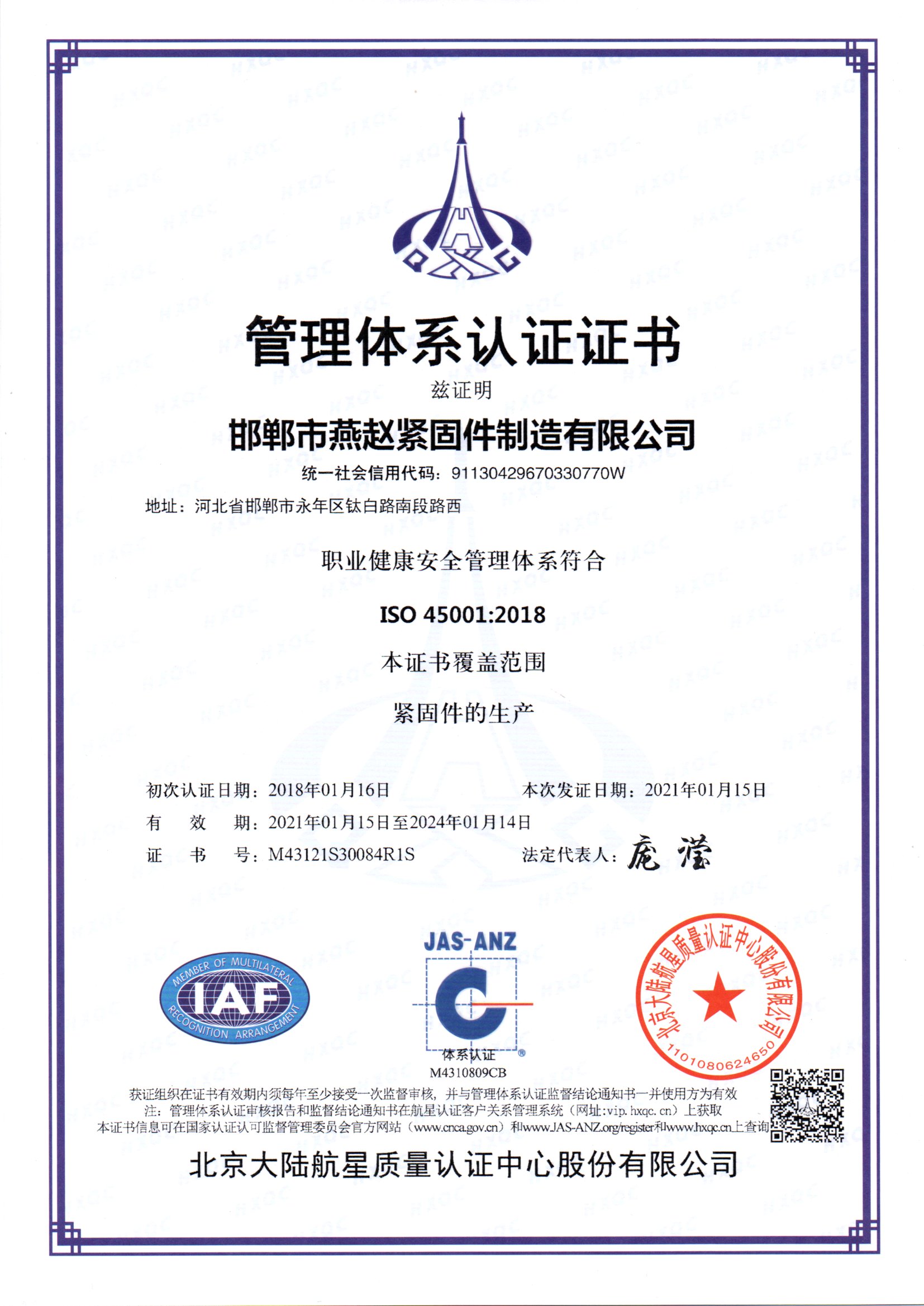High-Quality 316 Stainless Steel Washers from Reliable Suppliers for Your Needs
Nov . 07, 2024 16:40 Back to list
High-Quality 316 Stainless Steel Washers from Reliable Suppliers for Your Needs
The Role of 316 Stainless Washers in Industries
When it comes to securing components in various applications, washers play a critical role. Among the diverse range of materials used for washers, 316 stainless steel offers superior corrosion resistance and strength, making it a preferred choice in demanding environments. This article explores the significance of 316 stainless washers, their applications, and the criteria for selecting a reliable supplier.
Understanding 316 Stainless Steel
316 stainless steel is an austenitic alloy that contains molybdenum, which enhances its corrosion resistance and strength compared to other types of stainless steel, such as 304. This makes it particularly valuable in industries where exposure to harsh conditions is common, such as marine, chemical processing, and oil and gas. The chemical composition of 316 stainless steel allows it to withstand high temperatures and aggressive environments, preventing rust and degradation over time.
Applications of 316 Stainless Washers
316 stainless steel washers are utilized across a broad spectrum of industries. Some notable applications include
1. Marine Applications In boat fittings and marine hardware, these washers prevent corrosion due to saltwater exposure. 2. Chemical Processing For industrial equipment that handles corrosive substances, 316 washers ensure the integrity and safety of the assembly.
3. Oil and Gas In extracting and processing oil, components are exposed to extreme environments. 316 stainless washers provide the required durability and resistance to wear and tear.
4. Pharmaceuticals and Food Processing Hygiene is critical in these industries. 316 stainless steel, being non-reactive, maintains product purity and safety.
5. Construction In structural applications, washers help distribute loads, reduce wear, and protect against vibration loosening.
Choosing a Reliable Supplier
316 stainless washers supplier

Finding a trustworthy supplier for 316 stainless washers is essential to ensure quality and performance. Consider the following criteria when selecting a supplier
1. Reputation Look for suppliers with a solid reputation in the industry. Reading reviews and asking for recommendations can help gauge their reliability.
2. Quality Assurance Ensure that the supplier adheres to strict manufacturing standards. Certifications such as ISO 9001 signify a commitment to quality.
3. Product Range A good supplier should offer a range of 316 stainless washers in various sizes and specifications to cater to different needs.
4. Customization If your project requires unique specifications, partnering with a supplier that offers custom solutions could be beneficial.
5. Customer Service A responsive customer service team can significantly enhance your buying experience. Suppliers who are willing to assist with questions and provide post-purchase support are often more reliable.
6. Pricing While cost should not be the sole factor, competitive pricing is important. Be wary of extremely low prices, as they may reflect inferior quality.
7. Delivery Times Timely delivery is crucial for maintaining project schedules. A reliable supplier should provide estimated delivery times and adhere to them.
Conclusion
316 stainless washers are indispensable components in various industrial applications due to their exceptional properties, particularly their corrosion resistance and strength. The right supplier can make a significant difference in sourcing these components, ensuring that you have access to high-quality products that meet your specific needs. By considering the factors outlined above, you can select a supplier who not only delivers reliable products but also supports your operational goals. Whether you operate in the marine, chemical, or construction industry, investing in quality 316 stainless steel washers and partnering with the right supplier will ensure the longevity and safety of your projects.
Latest news
-
High-Quality Panel Stud Bolt Reliable Panel Stud Bolt Factory & Suppliers
NewsJul.08,2025
-
High-Precision Fine Thread Locknuts Manufacturer & Supplier Custom Solutions
NewsJul.08,2025
-
PH Imperial Stud Bolt – High Strength Fasteners from Leading Supplier & Factory
NewsJul.07,2025
-
High-Quality Allen Wrench Bolts Leading Factory, Company & Suppliers
NewsJul.07,2025
-
Wholesale Ball Stud Bolt - High Quality Supplier & Factory Price Reliable Wholesale Ball Stud Bolt Company
NewsJul.06,2025
-
High-Strength Alloy Bolts Manufacturer & Supplier Quality Alloy Fasteners Factory
NewsJul.06,2025
